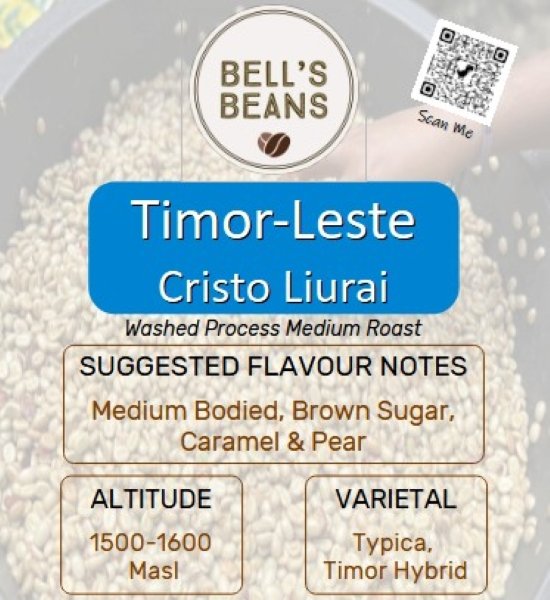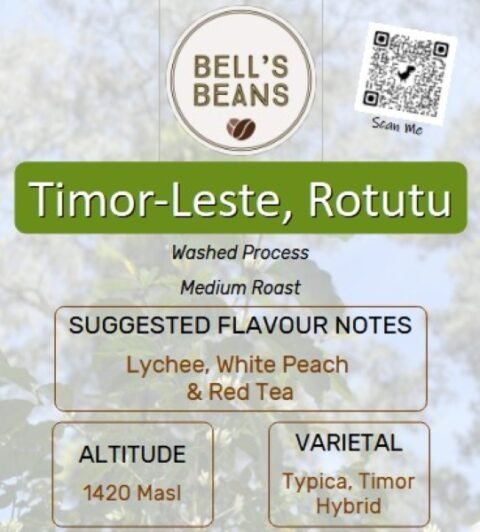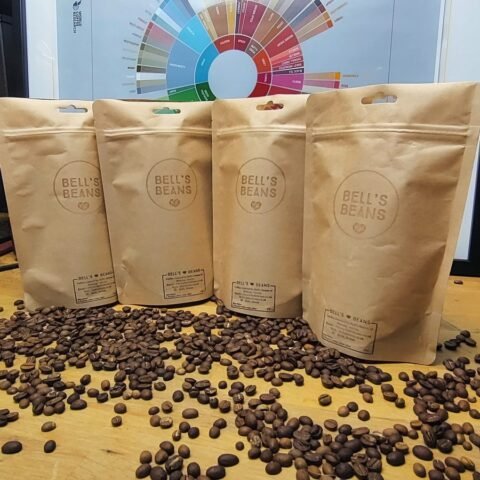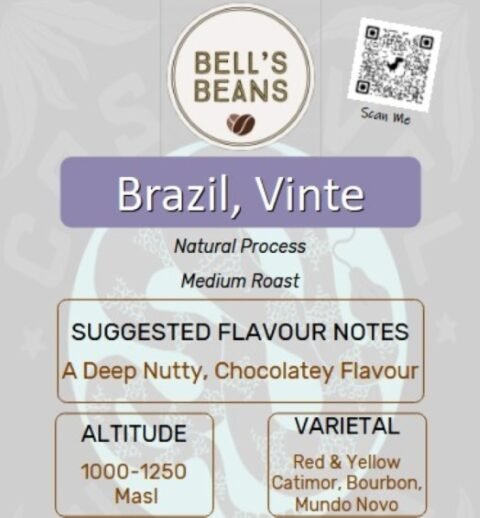Description
Overview of Timor-Leste (East Timor)
Situated in South-East Asia, approximately 1,000 miles east of Bali, lies the tropical island of Timor-Leste. With its lush green mountains and crystal-clear blue waters, this may look like an idyllic paradise, but the reality is that this small country holds a troubled and complicated history. Timor-Leste holds the unenviable accolade of being one of the few countries in the world to have been both colonised and annexed; colonised by Portugal from 1600s to 1975 and annexed by Indonesia from 1975 to 1999. Having finally gained independence for a second time in 2002, Timor-Leste is now the world’s second youngest nation state and trying hard to find its voice in the geo-political world of the 21st century after centuries of subjugation.
Coffee was first introduced to the island by the Portuguese and by the 1900’s was the country’s leading export, however the industry suffered greatly during the years of Indonesian annexation when the sector was largely ignored. Fast forward to the present day and you will see that the coffee farmers of Timor-Leste are working hard to collectively carve out a place for Timorese coffee in the global speciality coffee market, in addition to replenishing and rehabilitating their coffee forests which were so overlooked during the struggle for independence during the latter part of the twentieth century.
One of the most special features about East-Timorese coffee is that it is all organically grown underneath the imposing Ai-Kakeu (Casuarina) and Ai-Samtuku (Albizia) shade trees that dominate the mountainous coffee growing regions. Only natural fertiliser is used (consisting of chicken poo, cherry skin and soil) to nourish the soil and due to the country’s lack of development and strong animist beliefs, chemical fertilisers have yet to be introduced into agricultural practices.
With time old traditions in processing coffee, passed on from generation to generation, coffee is gradually helping to build up more opportunities for Timorese people to create a consistent and sustainable income from which to support and provide for their families and the local community. Thank you for helping us to spread the word about East Timorese coffee and firmly putting this new and exciting speciality origin on the coffee map.
Cristo Liurai
Origin: Cristo Liurai, Letefoho, East Timor
Producer Group: Cristo Liurai Cooperative (15 farmers)
Lead Farmer: Luis Santos de Jesus
Altitude: 1500-1600 masl
Varietal: Typica, Timor Hybrid
Process: Fully Washed, African bed drying
Separated and Graded: Screen sizes 17-15
What we taste: Brown Sugar, Caramel & Pear
The Timor Coffee Variety
The name “Timor-Leste” may sound familiar because the word “Timor” is also the name of a widespread coffee variety. “Timor” also appears in other varieties like “Catimor” or “Sarchimor”, names that, like their coffees, are hybrids of the two parent plants’ names.
It’s no coincidence the name “Timor” is so ubiquitous in our variety names, the first widely studied hybrid was found growing in Timor-Leste in the 1920s. The hybrid was the product of one Robusta and one Arabica plant mating. The resulting plant, which soon came to be known as Hybrido de Timor, after the island on which it was found, took on traits from both parent plants. The Timor hybrid was resistant to coffee leaf rust (CLR), like its Robusta parent, but also had higher cup quality, thanks to its Arabica parent.
The discovery of the Timor Hybrid coincided with the expansion of CLR across most of Central and East Africa and Asia. Since CLR spores can remain in soils long after the infected plants die (making it difficult to replant the same varieties), new CLR-resistant hybrids became essential to revitalizing coffee production in these regions. Since Timor’s discovery, scientists have bred countless other hybrid varieties to combat the CLR epidemic and the older Timor variety has played a central role in continuing to breed new resistant varieties with good cup quality, such as Marsellesa, Obata and Oro Azteca, to name a few.
A Word From Karst Organics
Cristo Liurai is located in the western part of Letefoho, with all the members being based around the southern perimeter of the mountain protected by the watchful gaze of the Cristo Liurai statue. Since Francisco de Deus – the lead farmer of the Rotutu group introduced us to the members back in 2020, our partnership together has gone from strength to strength. Led by Luis Santos de Jesus (a school teacher by day), each of these 15 smallholder farmers have a great respect for their coffee and the land on which it is grown. Harvesting coffee from this area is not easy due to the steep terrain and dense forests, and members need to make the daily hike up the mountain to harvest their cherries, and at the end of the day will then carry their harvest back down the mountain, often balancing sacks of up to 30kg on their shoulders.
This is a very organised group, due to Luis’s oversight, who has worked tirelessly to encourage strict record keeping within the community of drying times and changes in moisture content, and for good reason. This last few years has seen increased early afternoon cloud coverage settling around the southern part of the Cristo Liurai mountain, which has meant an increased need for vigilance with drying and our continued support in providing portable drying racks to all of the group’s members. Because of this, drying times with this group are slightly longer, however good things come to those who wait – consistently producing fully washed coffee which is deliciously clean, sweet and well balanced.
2023 has also seen us build our first seedling nursery in Eratoi, where together with Simao our field manager and lead farmer of the Eratoi group, we will be looking to cultivate new coffee and shade tree seedlings. For every 10kg of green beans that we sell to our partner roasters, we will commit to planting one new coffee or shade tree seedling which will be distributed to our partner farmers (including members from Cristo Liurai) for planting at a later date, so a big thank you to you for helping us to achieve this goal.
Information and Pictures supplied by Karst Organics
How to store coffee at home
To keep your coffee as fresh as possible, you need to protect your coffee from air, sunlight, heat, and moisture. These all will contribute to making it stale and lose flavour.
We suggest keeping your coffee in an airtight container, in a cool, dry cupboard. Our bags all have a de-gassing valve, to let out CO2 that the beans produce once roasted, it’s not just there to sniff the coffee, and a reusable ziplock. So if you don’t have a fancy coffee jar just push the air out the bag, zip the lock and give the bag another squeeze to get any remaining air out.
Do not store your coffee in the fridge. Roasted coffee absorbs moisture from the air (hygroscopic) and will also take up surrounding aromas. The aromas and moisture levels in the fridge will react with the coffee and delicate flavours will deteriorate.
Need help on which grind size? Click here
News Letter
Fancy 15% off a coffee order? Then sign up to our news letter for a discount code, along with being the first to know about new coffees, special offers, tips and tricks.
Want to know more about Bell’s Beans?













Reviews
There are no reviews yet.